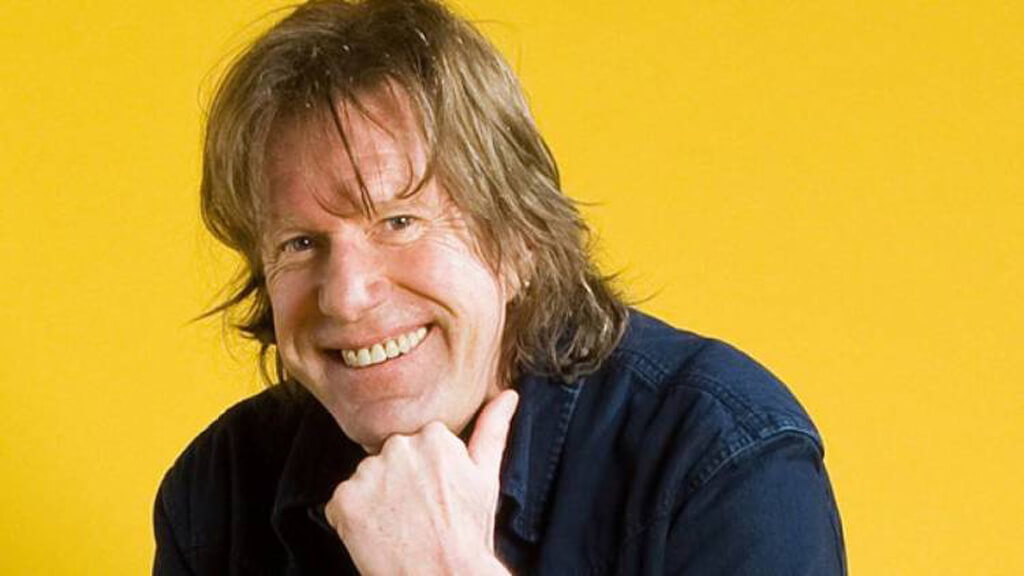Keith Emerson: A hero to the progressive rock movement.

The world is now a little less musical with the passing of progressive rock icon Keith Emerson. The last time I saw the maestro play was in Montreal in 2010 during the Emerson/Lake show at Théâtre Maisonneuve, Place des Arts. Greg Lake reminded the audience that night that they (Emerson, Lake and Palmer) and we (the audience) were “like a family”; “we’ve watched each other grow up.” Fans of progressive rock have certainly watched the legendary Keith Emerson mature in stages.
As a young teenager, I remember being captivated by Emerson in The Nice, especially his piano rendition of a Tim Hardin song, Hang on to a Dream. The track beautifully captures both the innocence of the ‘60s and Emerson’s virtuosity. I was spellbound watching him blend classical, jazz, and rock in a unique tapestry, and although I could not explain it then, I knew that I was in the presence of a genuine artist. When I purchased my first record by The Nice, it contained the track Flower King of Flies, and I was thrilled to discover the talent of this amazing organist, someone who broke all the rules.
When Emerson, Lake and Palmer (ELP) formed, it just confirmed every fan’s basic belief that we were, in fact, witnessing greatness blossom. In the 1970s, ELP was one of the most exciting, innovative bands on the planet, and they continued to improve with each successive studio recording. Taken as a whole, Emerson, Lake & Palmer (1970), Tarkus (1971), Trilogy (1972), Brain Salad Surgery (1973), and Works Vol. I (1977) showcased a group that defied musical boundaries.
In 1977, the band peaked during their infamous Montreal Olympic Stadium concert. Augmented by over 100 orchestra and choir members, and 88,000 of the fan faithful in attendance, the show represented ELP at its best — a classical rock extravaganza. It stands as one of the greatest shows in rock music history.
After ELP went on hiatus, Emerson diehards remained dedicated to the next phase of his career as a film composer. Emerson conjured up a frightening score for Dario Argento’s Inferno (1980). He also added a dramatic flair to Sylvester Stallone’s thriller Nighthawks (1981). It was largely because of Emerson that prog rockers took more interest in film scoring as a unique art form.
The 1980s also introduced a modern version of ELP to the Music Television (MTV) generation. ELP scored a hit with Touch and Go in 1986 (with Cozy Powell on drums). For those who loved classic ELP, however, the Gustav Holst track “Mars, the Bringer of War” showcased Emerson’s talent as an arranger.
In 1988, Emerson would modernize the progressive sound further in a commercial outfit called “3,” which marked the return of Carl Palmer along with Robert Berry on bass guitar and vocals. The hit Talkin’ Bout was well received, but ELP would return with the original lineup to record 1992’s, Black Moon. Although ELP were becoming a presence in the 1990s and played some outstanding shows, by 1998 the band was no longer a functioning unit.
Over the past two decades, however, Emerson began to shape his own identity as a serious composer. The music of ELP has caught on with orchestras around the world. Not only has Emerson’s “Piano Concerto No. 1” been widely promoted by world-class pianist Jeffrey Biegel, but in classical repertoire, Emerson’s name is now confidently mentioned in the same company as Bach or Mussorgsky—and rightly so. His Three Fates Project (2012), with guitarist Marc Bonilla and conductor Terje Mikkelsen, is a testament to his love of the classical genre.
As far as rock bands go, ELP was special. The group instilled a sense of culture into rock music by bringing classical music to the masses. Emerson challenged listeners to go beyond standard pop and travel the road less traveled. And prog-rockers enthusiastically came along for a white-knuckle ride. Sadly, in March of 2016, that ride came to an end.
Yet Emerson’s legacy lives on. He was part of a musical counterculture, as important to the identity of ‘70s prog-rockers as Bob Dylan was to the ‘60s protest movements. Whereas poets agonize over every word they craft, Emerson genuinely cared about every note he played. He was truly a musician’s musician.
As a pioneer and innovator, he created musical structures that sounded seemingly impossible to create. It’s not surprising that he is the standard by which all rock keyboardists are compared. For prog rockers, myself included, Emerson is the godfather of the progressive rock movement. He was and will always remain our musical hero.
#LUDWIGVAN
Want more updates on Toronto-centric classical music news and review before anyone else finds out? Get our exclusive newsletter here and follow us on Facebook for all the latest.



